With each passing year the hunger for success awakens among more and more ambitious citizens around the world. It is hardly surprising since there are also more and more opportunities for entrepreneurs. One of the best examples is the growing “economic miracle” in Ireland. It is not only worth noticing, but also following. Let’s go through 7 most important advantages of starting your business in Ireland. It can help you make up your mind and get you a better start in your professional life.
The tax system
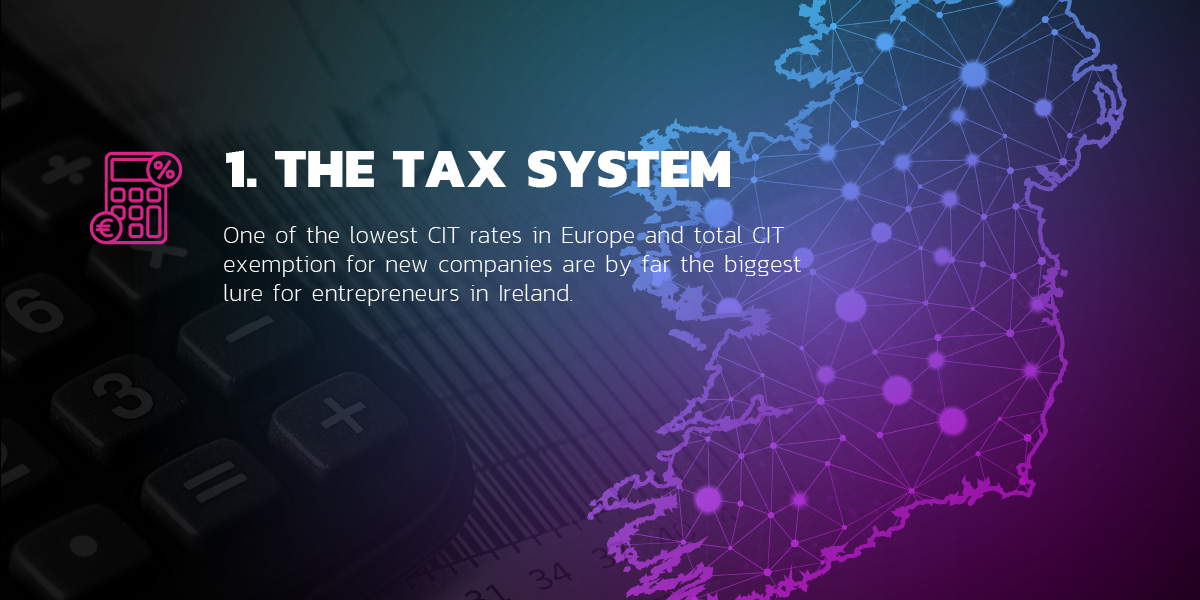
The most popular forms of doing business in Ireland are:
- sole trader, also known as self-employment
- civil law partnerships or partnerships
- limited liability company
People running their own business in Ireland emphasize at every chance they get how the Irish tax system is adapted to entrepreneurial people. One of the lowest CIT rates in Europe and total CIT exemption for new companies are by far the biggest lure for entrepreneurs in Ireland.
The basic corporate income tax rate on Green Island is 12.5 percent (such a rate is taxed on the company’s core business). While the 25% rate applies only to income from other operations of the company (and thus, e.g. from financial operations). A very low rate – 6.25 percent, also includes income from research and development conducted in Ireland and new companies. As long as they do not generate a profit exceeding EUR 1 million annually, can count on total exemption from CIT for the first 3 years (saving up to EUR 40,000 annually).
High tax free allowance
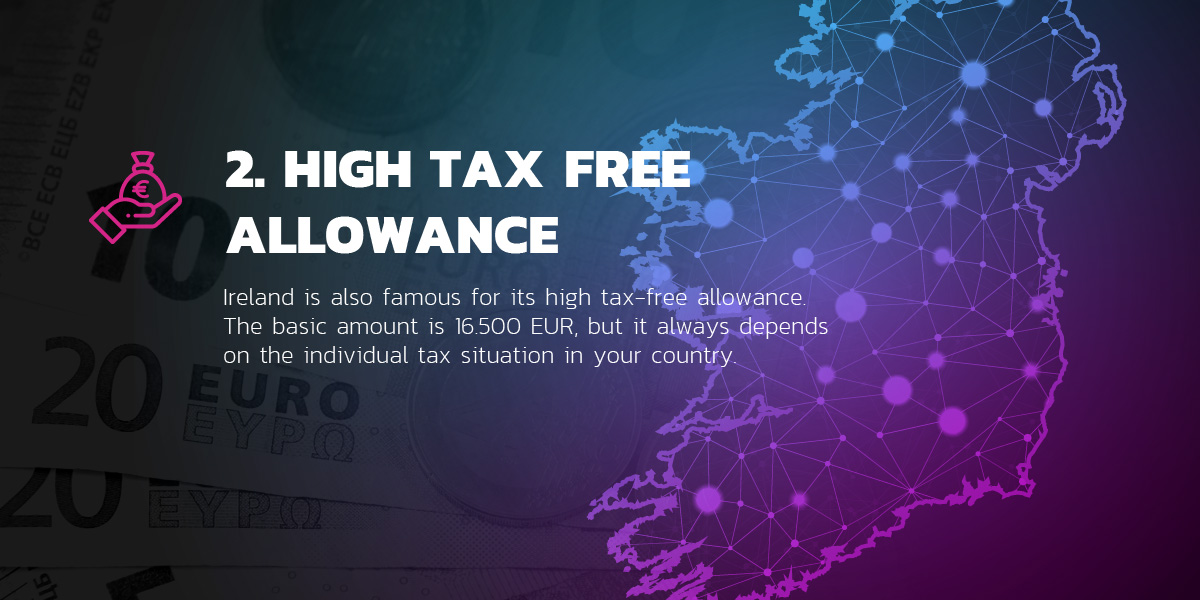
Ireland is also famous for its high tax-free allowance. The basic amount is 16.500 EUR, but it always depends on the individual tax situation in your country. The free amount of 16.500 euros is for a single person working full-time, but for a single person who wants to be an entrepreneur the free amount is 13.000 euros. Much higher service rates, in turn, for single parents. Marriages in which only one person works and marriages in which both people work. A single full-time parent can count on 24,750 EUR of the free amount, the same with marriage in which only one person works and a marriage in which two people work will get 33,800 EUR of free amount.
You don’t have to know everything
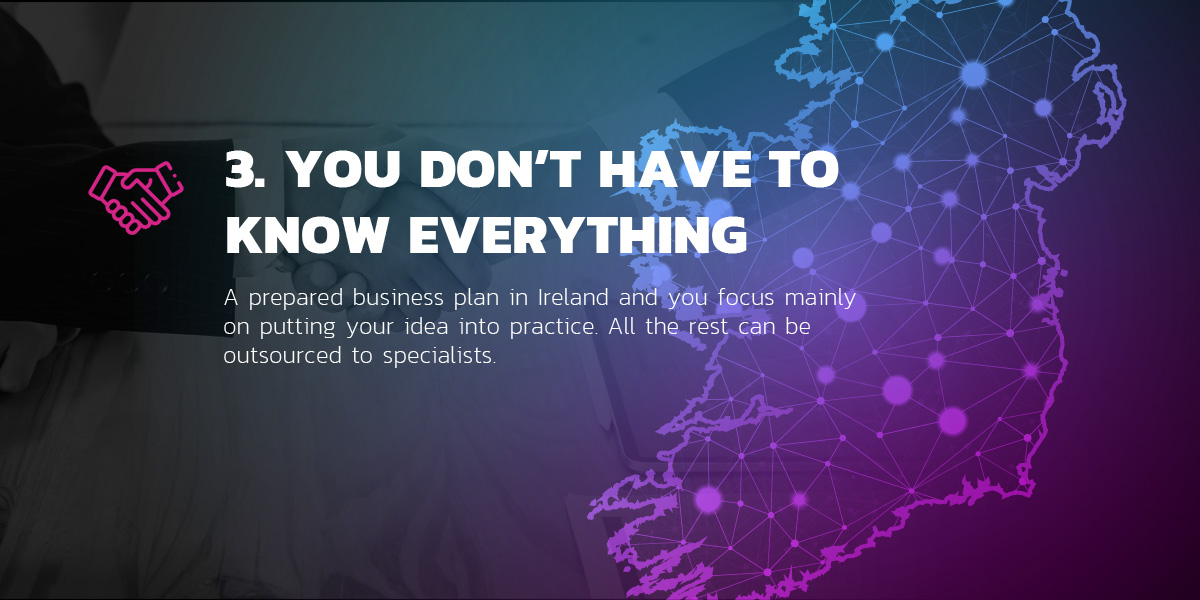
To run a business in Ireland you do not need knowledge of the local law. You also don’t need to know accounting principles, taxes details or even advanced English. You are an entrepreneur and you have an idea for a business. A prepared business plan in Ireland and you focus mainly on putting your idea into practice. All the rest can be outsourced to specialists. You are guided step by step. So you will manage, even if formal matters seems like a dark magic for you.
Easier start for non-residents
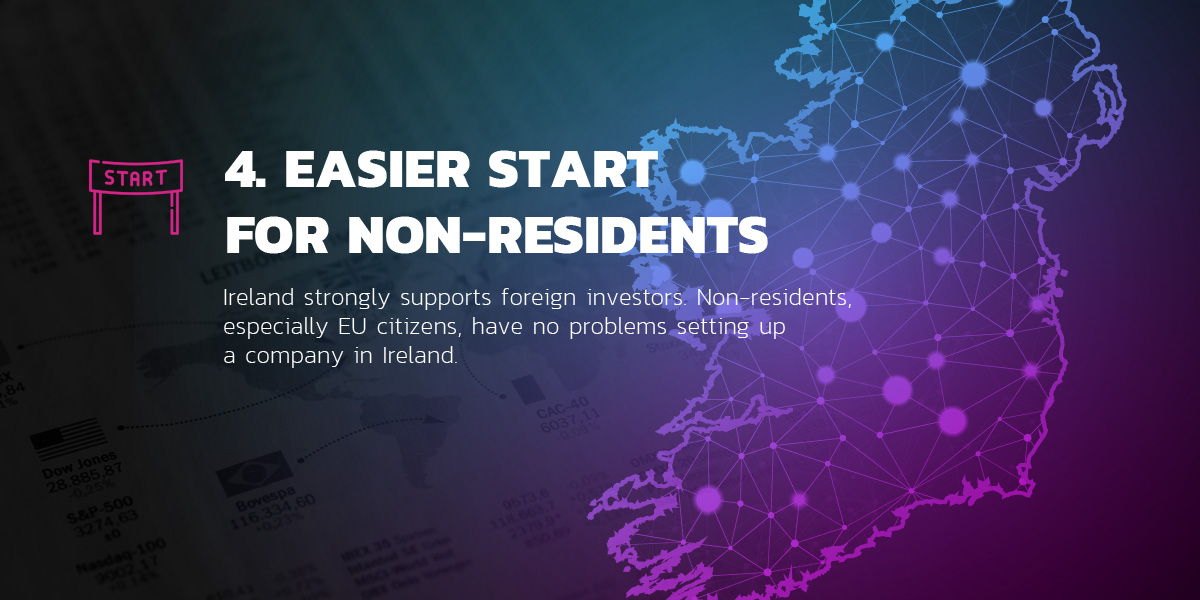
Ireland strongly supports foreign investors. Non-residents, especially EU citizens, have no problems setting up a company in Ireland, obtaining a PPS number (social security number) or opening a bank account for the company.
Friendly conditions for running a business
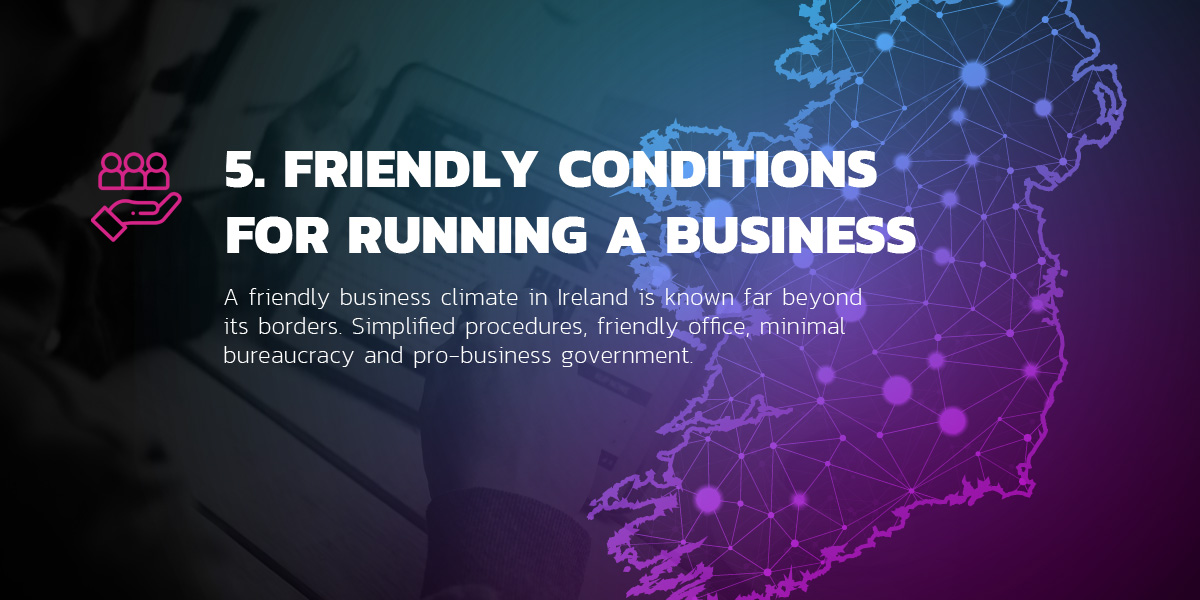
A friendly business climate in Ireland is known far beyond its borders. Simplified procedures, friendly office, minimal bureaucracy and pro-business government. For example, let’s take the amount of hours needed to fill in paperwork documenting business activity. ‘Paying Taxes 2020’ ranking prepared by PwC shows that the average Irish entrepreneur spends only 82 hours a year on paperwork. While Polish entrepreneur, for example, spends 334 hours on it.
Lower social security contributions
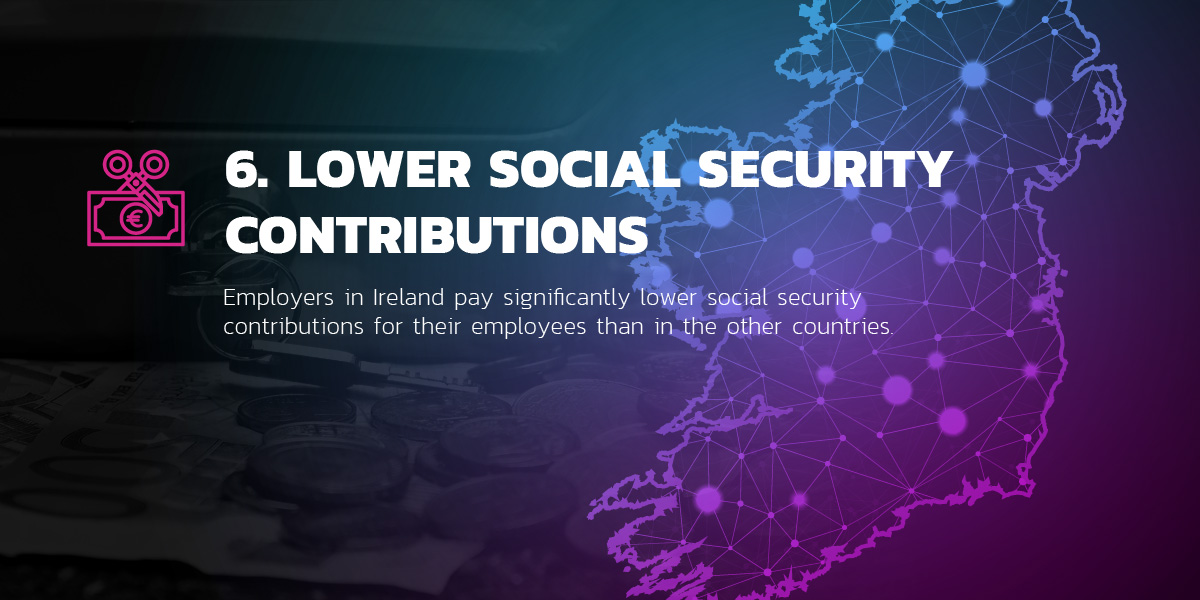
Employers in Ireland pay significantly lower social security contributions for their employees than in the other countries. For example, in Poland in relation to gross salary. The share of contributions paid by the entrepreneur in Ireland in the gross salary of an employed person ranges from 8.5 – 10.75 percent. While in Poland this contribution averages 16.26 percent.
Personal development
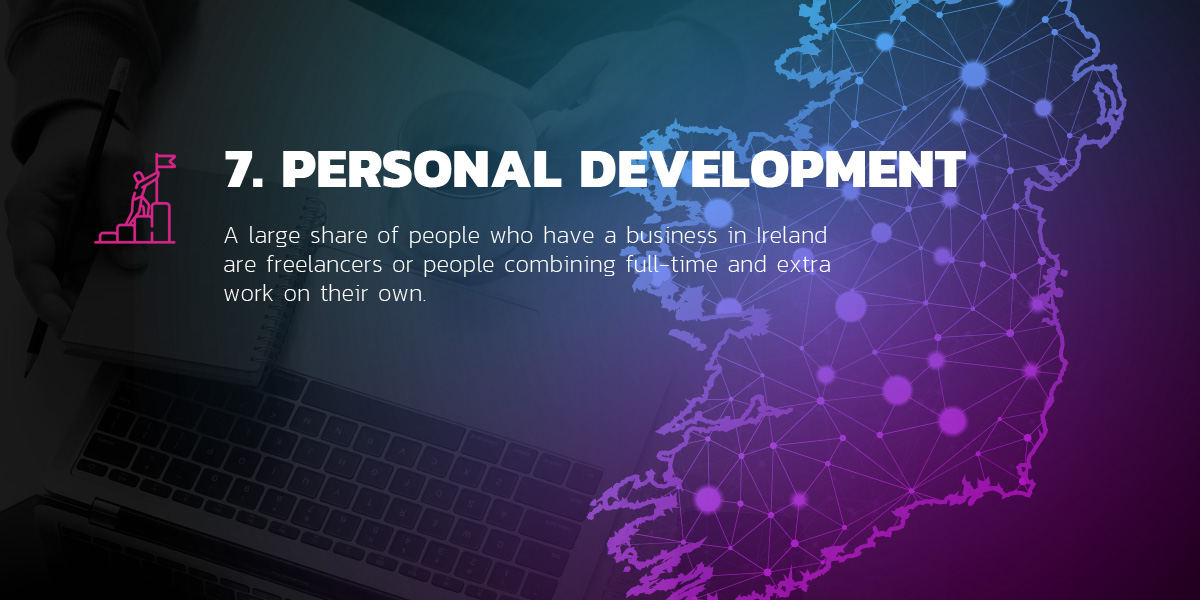
Finally, if you follow closely what is happening in the world. You probably notice how many people discover their passions and achieve a decent income by running their own business. A large share of people who have a business in Ireland are freelancers or people combining full-time and extra work on their own. So you don’t have to quit a full-time job right away. All you need to do is to believe in yourself and to grow. If you also need more knowledge about running your business, read our article.